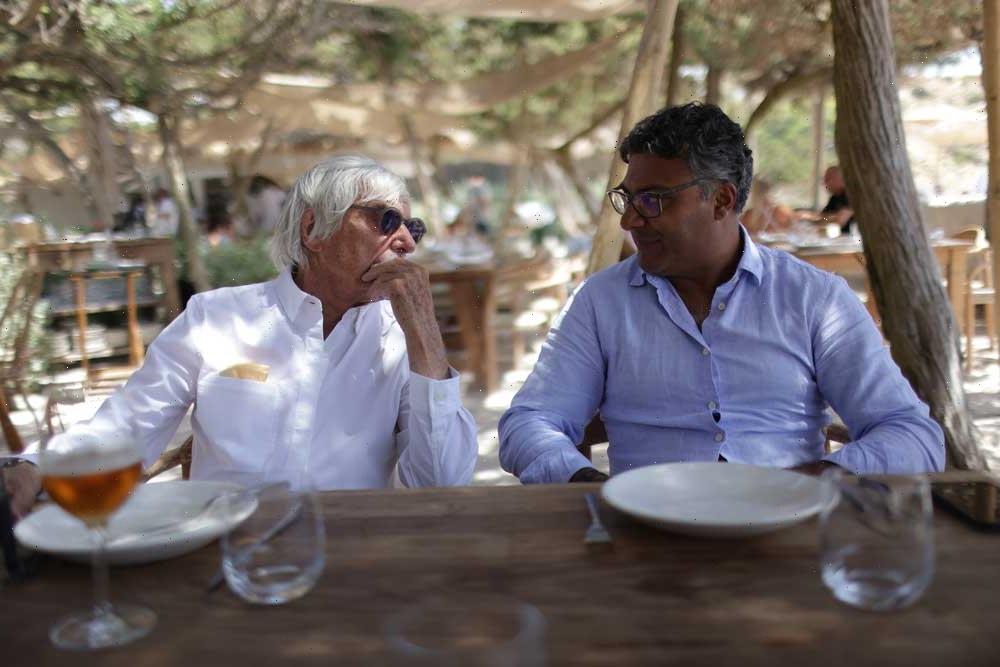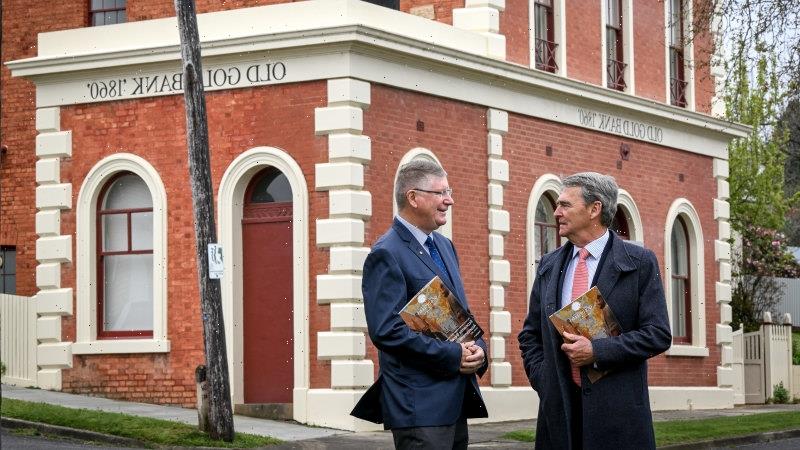Illustration: Jim PavlidisCredit:
To submit a letter to The Age, email [email protected]. Please include your home address and telephone number.
GOVERNMENT POLICY
We all know where the money has to come from
I am rather puzzled as to why people are getting tied up in knots over the thought of the stage three tax cuts being axed all because an election “promise” was made. Why do we give so much weight to this word, particularly as governments are well known for breaking them? The general public has to realise that decisions made while in opposition do not and should not necessarily translate into what needs to be done when in government.
The grim reality of it all is that we cannot afford those tax cuts. Where is the money coming from to pay for them? We all know where from: funding slashed across the board, from entities that can ill afford it, for what? It is not going to be an advantage for the average Aussie battler.
Stop expecting governments to be holier than thou in regards to keeping so-called promises and drag yourselves into the real world of ever-spiralling debt and how to mitigate it in a sensible fiscal way.
Catherine Gerardson, Watsonia North
These commitments are not immutable
Given the large government debt, approaching $1 trillion, and the increasing cost of providing essential services such as healthcare, aged care and the NDIS, it is clear that this is not the time to provide tax cuts benefiting high-income earners.
The fact that a political party makes certain promises, albeit in good faith, prior to an election, should not mean that these commitments are immutable come what may.
Those who voted for the Albanese government are no doubt accustomed to having to make changes to financial plans in their daily lives as circumstances change, and therefore can understand that responsible governments must do likewise.
The process of government changing promised policy is no doubt politically risky, but would gain widespread support in the face of adverse circumstances.
The mark of a mature, responsible, government is to act according to the prevailing situation, but that task is not assisted by commentators in the media invariably describing such policy change as a back-flip, U-turn or betrayal, instead of praising a difficult, but sensible and courageous reappraisal.
Leslie Chester, Brighton
Where are they on the environment?
Bob Brown’s comment on Environment Minister Tanya Plibersek’s environmental actions is fair and detailed (“Plibersek’s actions don’t match words on climate”, Comment, 6/10).
She should be seizing the opportunity to “end the destruction”, specifically, end fossil fuel subsidies and projects, and native forest clearing. Cathy Wilcox’s apt cartoon (6/10) says it all.
A former effective shadow education minster, Plibersek can educate herself, colleagues and others about the importance of the environment and ecosystem for a healthy world. The Albanese government should applaud her words and back her fully.
Of course, they are exceptionally busy on many matters but where are they on the environment? Barbara Fraser, Burwood
If conditions change the setting should be adjusted
Why do politicians call this a “promise”, to be set in stone? It’s a “policy setting” made under conditions prevailing at the time.
As with any setting, if conditions change, the setting should be adjusted to accommodate the changed reality.
Reg Bancroft, Port Melbourne
Why not just defer the cuts?
If an election promise by the Labor Party was made to not undo the tax cuts, then it is reasonable that the promise not be broken.
What may be appropriate given the global economic situation would be to delay implementation for three or four years.
Given the change in economic circumstances, this may be a way forward that many of us would find reasonable.
Graham Black, Hamilton
THE FORUM
A shiver up the spine
The broader Christian church consists of a wide range of people who agree on the fundamentals of faith, but may disagree on a range of social issues.
Progressive churches no longer demand that members must sign onto a rigid statement of faith that includes areas such as sexual orientation, abortion or euthanasia. This is certainly the situation with independent churches unaligned with the more traditional protestant denominations.
If I were to do a study of my place of worship, I would expect to find unity on basic Christian doctrine, but a range of views on some of the social issues of that are now prominent in the marketplace. For the critics of Andrew Thorburn to make a case by highlighting a sermon preached by someone else 10 years ago is spurious indeed.
Fortunately, more churches are, in my experience, encouraging their members to love people more and judge them less.
The circumstances surrounding the resignation of Thorburn have sent a shiver up the spine of many followers of Jesus.
I am curious to know how the football club would have responded if Thorburn was a member of another major faith.
Lance Sterling, Nunawading
A question for the club
In his report from the financial services royal commission four years ago, commissioner Kenneth Hayne said: “I thought it telling that Mr Thorburn treated all issues of fees for no service as nothing more than carelessness combined with system deficiencies.”
Regardless of his religious affiliation, is this a person who should be entrusted as CEO of an organisation that says in its mission statement that it aims to ensure that “high standards of corporate governance and risk management are maintained throughout the club”?
Joe Wilder, Caulfield North
Reasonable expectations
Imagine that the Liberal Party employed somebody who turned out to be a member of the Greens.
Not unreasonably, the Liberal Party wants the employee to endorse Liberal values and enact Liberal policies. The employee decides that this contravenes their commitment to the values and policies of the Greens and, consequently, resigns.
This is analogous to the situation in which Andrew Thorburn found himself. It is not discrimination, it is not cancel culture, it is not silencing Christians. It is about alignment with the values of an organisation in which an individual sought employment.
Jane Edwards, Peterhead, SA
UN impotence writ large
Russia’s war against Ukraine, its illegal annexation of territory and a threat of using nuclear weapons demonstrate just how impotent the United Nations is in securing world peace. It is no wonder why a rogue state like North Korea can send a missile over the airspace of a neighbouring country while ignoring international opinion.
Radical reform of the Security Council is therefore a must for the international community. Any member country conducting either an aggressive war or covertly supporting such a nation should be expelled. The power of veto should be abolished. And the Security Council should include middle-ranking powers, which are more disposed towards peace than war.
Australia should champion such reforms. It can use its influence among its Pacific nations to support change. While the present arrangements continue, the Security Council will never be able to stop major conflicts.
Martin Newington, Aspendale
May decency prevail
Your correspondent refers to the government’s obscene decision to return refugee artist Farhad Bandesh to his home country (“A new government, the same old Home Affairs”, Letters, 5/10).
This is after seven years in Australia, where he has settled and made a new, good and stable life. Has our new Labor government lost its way already? A government that was previously very critical of such actions by Home Affairs.
One can only hope that common sense and decency will prevail.
Gloria Meltzer, Chewton
Why have ‘values’ if …?
The latest piece of spin from those who peddle religion for a living is that we must “respect” the values of “people of faith” no matter what those values are or how extremely they are expressed. They then claim that having such “values” would not interfere with any job such people might want. Well, what’s the point of having values in the first place if they can be cast aside so easily to earn a dollar?
My “values” include not discriminating against someone because of their sexuality and giving women the right choose what happens to their bodies.
The “values” that some people want to hold are, in fact, prejudices against others or control mechanisms to stop people, usually women, from exercising their freedom of choice.
Paul Kennelly, Caulfield North
Compulsory reading
How lucky we are to have independent federal members of parliament who can see the state of the country, call it how it is and not have to toe a party line.
Monique Ryan’s (“Rolling the dice on COVID is Labor’s first big misstep”, Comment, 4/10) gave a sobering account of the way decisions have been made about COVID-19 restrictions and the almost total disregard of expert medical advice.
She completely opposed the likening of COVID-19 to the ’flu, gave reasons for her stand, and painted a realistic (if frightening) account of what might be in store for the country if new variants of the virus arrived, which she considered inevitable. Her article should be read by everyone.
Marie Rogers, Kew
It’s not either/or
Your correspondent (And another thing, 5/10) suggests that we should solve the problem of homelessness in Australia before bringing “these IS families” back here.
This seems to me to be a false equivalence of two needs, one far more intractable than the other.
I suggest that we Australians are broad-shouldered enough to accept responsibility prudently for the obligations required of us, not only by the exigencies of social justice, but equally by our need for self-respect as an enlightened nation.
Rose Marie Crowe, McKinnon
On different pages
While Bob Brown is right to criticise the federal government’s broader environment policy when it comes to approving gas and related projects, he shouldn’t forget the role of the state in natural-resource exploitation and biodiversity protection (“Plibersek’s actions don’t match words on climate”, Comment, 6/10).
The Commonwealth Environment Protection and Biodiversity Conservation Act in itself has limited powers, and most decisions on resource exploitation and native-vegetation clearing are made by the states through their planning and environment laws.
Until the states and the federal government are in lockstep on environment protection, and particularly in halting native-vegetation clearance on private land, the biggest threat to biodiversity above and beyond climate change, there will be little progress to stop and begin to reverse the threats to Australia’s rich and unique biodiversity.
Grant Hull, Ballarat Central
Rates and rent
As rents soar, meaning many can no longer afford the rent where they live, landlords blame the rising interest rates for increased rents.
I don’t remember rents going down as interest rates dropped to their lowest point than most of us can remember.
Jenny Callaghan, Hawthorn
Insecure employment
It’s not surprising that there is a shortage of skilled workers when the workforce is now highly casualised (“Rise in occupations with skills shortages amid labour pressure”, The Age, 6/10).
Staff are often asked to do impossible shifts at short notice. This is seen in the nursing sector, where a staff member can be asked to do a 12-hour shift and is also expected to do an early shift, an evening shift and a night shift all in one week.
Casualisation has also reduced the student intake numbers. Why would you go to university or TAFE to study for years on end when the jobs are temporary with no certainty? Not to mention that there is the repayment of fees for doing so. Employers need to stabilise the workforce by offering permanent positions.
Maria Liew, Woodend
Selling stage three cuts
I could go along with the stage three tax cuts if they would close all the other tax loopholes for the wealthy like negative gearing, holding more than $2 million in superannuation, income streaming through family trusts, government funding of private schools as well as a tax on windfall profits of mining companies and ending the diesel tax rebate.
These measures would more than compensate for the tax loss of the stage three cuts.
Barry Lizmore, Ocean Grove
Rules to live by
The problem Christian churches have with homosexuality, and with sex in general, is the same as it had with Galileo and the concept of heliocentrism: the church placed more validity in ancient myths and texts than in scientific reality.
Homosexuality is not a lifestyle choice any more than one’s eye colour, and sex in humans is not simply about reproduction.
True Christianity favours generosity, kindness, inclusion, acceptance and forgiveness. These are the tenets that should guide modern churches, not resentment and snide exclusion.
Peter Barry, Marysville
They don’t need this data
In light of the Optus breach, why do organisations require data that is not necessary for purpose?
I recently booked for a holiday and the motel required my driver’s licence number. Why? They have my credit card details and have already taken out the deposit.
The other two motels for our booking did not request any such data from us.
Brian Jones, Bentleigh East
AND ANOTHER THING
Essendon Football Club
How embarrassing. Due diligence check? Nah, she’ll be right, mate.
Jack Ginger, Caulfield South
Credit:
The Dons of our lives.
David Lyall, Mount Eliza
Tolerance and diversity
Surprise, surprise. The supposed new tolerance is actually intolerant.
Barb Kingston, Mount Waverley
Sporting clubs must be about inclusivity, tolerance and diversity, full stop. There is no place for bigotry, religious dogma within clubs dealing with young lives.
Ron Reynolds, Templestowe
Church leaders and some politicians argue that sacking Andrew Thorburn because his views don’t align with the values of the Essendon footy club is religious discrimination, but they also argue that religious schools have the right to not hire or can sack staff who don’t align with their values. What hypocrisy.
Brian Burgess, Middle Park
Recent events highlight the need for more “agree to differ” and less “I’m right and you’re wrong”; for more listening and less shouting.
Jim Spithill, Ashburton
The tax cuts
Surely there’s a Sir Humphrey in Canberra who can advise the government to just “postpone” the tax cuts.
Peter Knight, Saint Arnaud
Anthony Albanese, changing your mind indicates you have one.
Owen Rye, Boolarra South
Some promises were made to be broken. Stage three tax cuts are a case in point.
Jenny Bone, Surrey Hills
Furthermore
Perhaps we have just tolerated religious bigotry long enough?
Phil Bodel, Ocean Grove
Due diligence on “faith” is long overdue.
Bernd Rieve, Brighton
Finally
We atheists will soon be favoured to win any CEO position.
Ralph Frank, Malvern East
Michael Bachelard sends an exclusive newsletter to subscribers each week. Sign up to receive his Note from the Editor.
Most Viewed in National
From our partners
Source: Read Full Article




